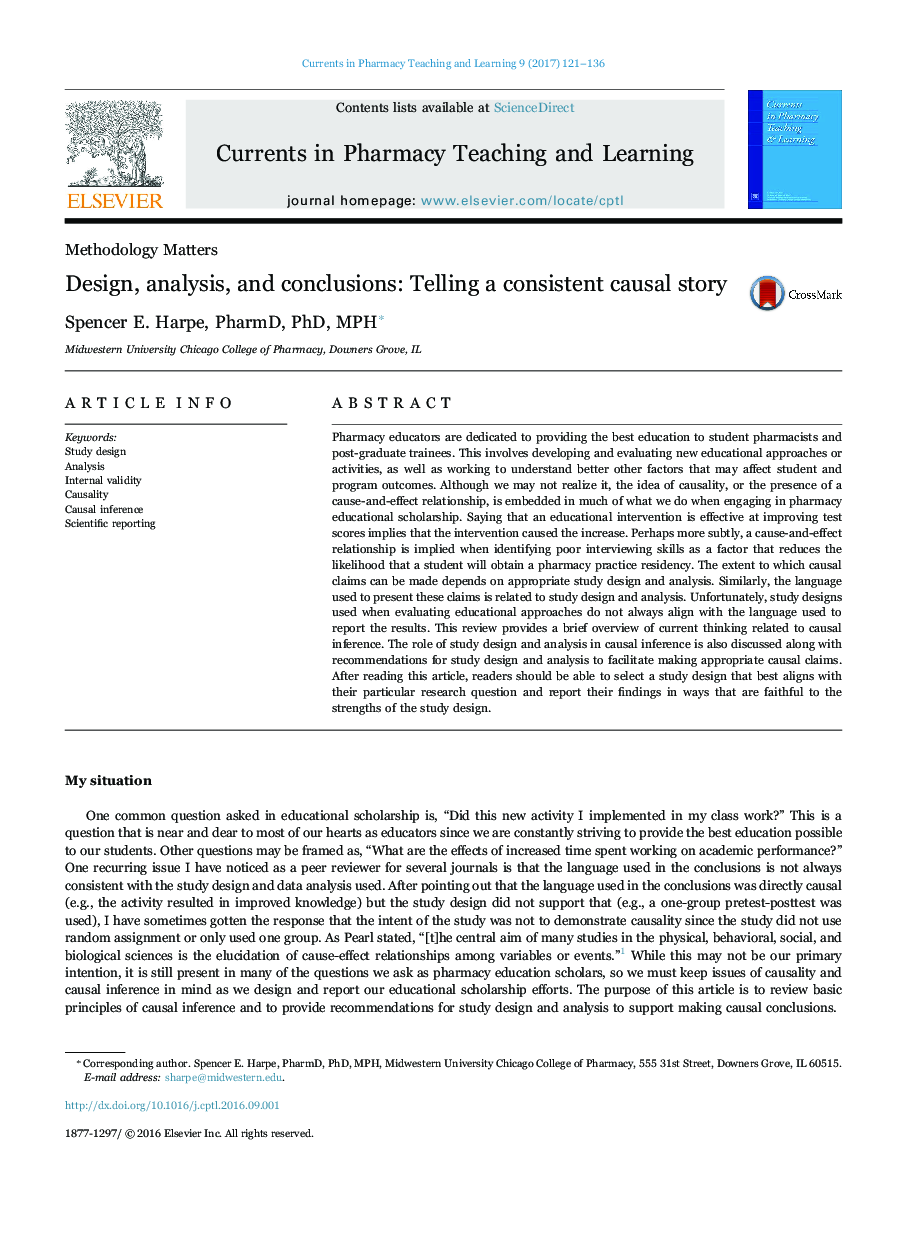| Article ID | Journal | Published Year | Pages | File Type |
|---|---|---|---|---|
| 4938116 | Currents in Pharmacy Teaching and Learning | 2017 | 16 Pages |
Pharmacy educators are dedicated to providing the best education to student pharmacists and post-graduate trainees. This involves developing and evaluating new educational approaches or activities, as well as working to understand better other factors that may affect student and program outcomes. Although we may not realize it, the idea of causality, or the presence of a cause-and-effect relationship, is embedded in much of what we do when engaging in pharmacy educational scholarship. Saying that an educational intervention is effective at improving test scores implies that the intervention caused the increase. Perhaps more subtly, a cause-and-effect relationship is implied when identifying poor interviewing skills as a factor that reduces the likelihood that a student will obtain a pharmacy practice residency. The extent to which causal claims can be made depends on appropriate study design and analysis. Similarly, the language used to present these claims is related to study design and analysis. Unfortunately, study designs used when evaluating educational approaches do not always align with the language used to report the results. This review provides a brief overview of current thinking related to causal inference. The role of study design and analysis in causal inference is also discussed along with recommendations for study design and analysis to facilitate making appropriate causal claims. After reading this article, readers should be able to select a study design that best aligns with their particular research question and report their findings in ways that are faithful to the strengths of the study design.
